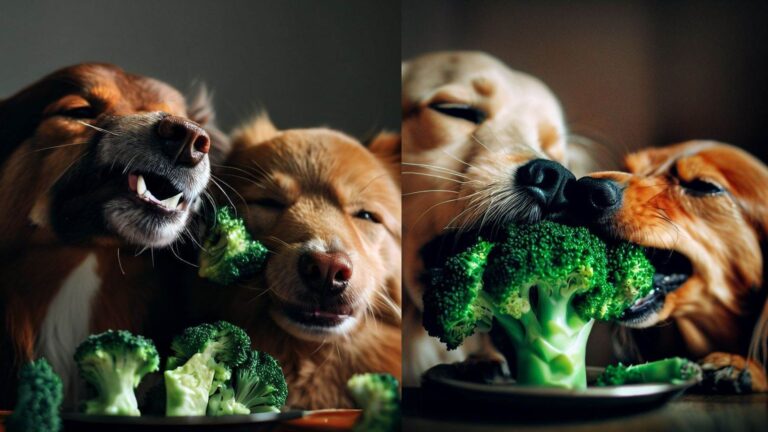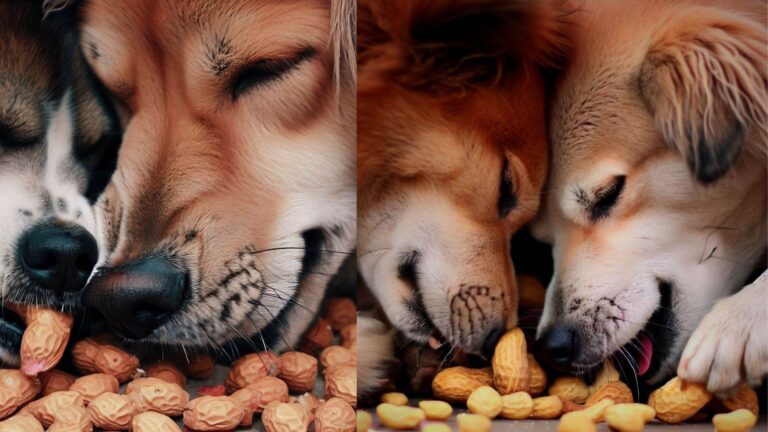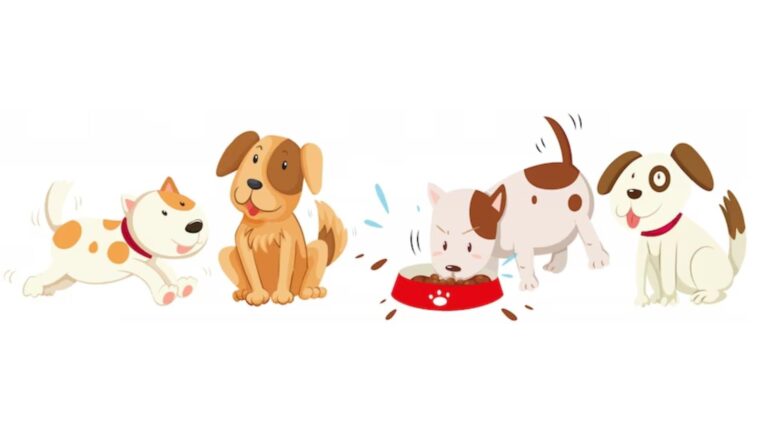In this comprehensive guide, we will delve into the intriguing question: can dogs eat persimmons? As responsible pet owners, we understand the importance of providing our furry friends with a balanced and safe diet.
Persimmons, with their unique flavor and texture, have gained popularity in human diets, but how do they fare when it comes to our canine companions? In this article, we’ll explore the nutritional aspects, potential benefits, risks, and guidelines for feeding persimmons to dogs. Our mission is to equip you with the knowledge needed to make informed decisions about your dog’s diet.
Table of Contents
Understanding Persimmons and Their Nutritional Value
What Are Persimmons?
Persimmons are vibrant and delectable fruits that come in various varieties, including Fuyu and Hachiya. These fruits are packed with nutrients such as vitamins A, C, and E, as well as dietary fiber and antioxidants. They are celebrated for their sweet and tangy taste, making them a favorite among humans during the fall season.
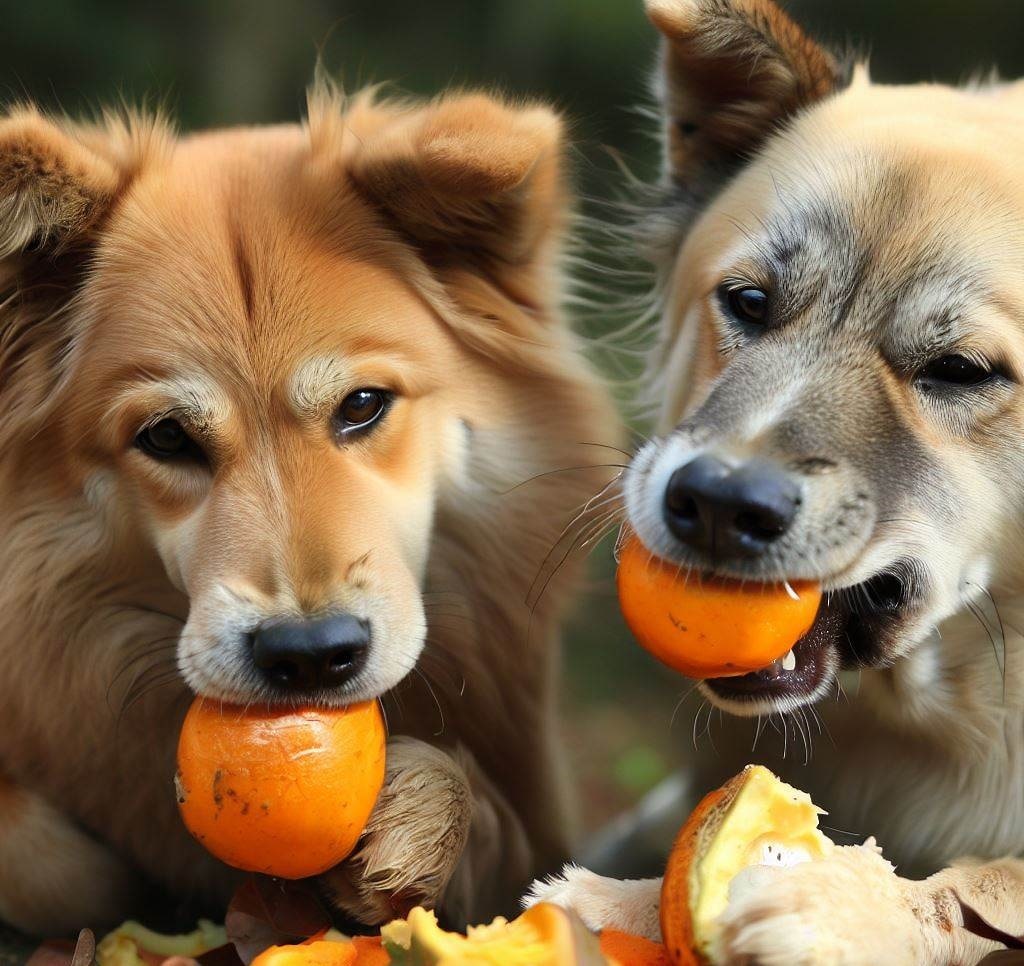
Nutritional Content of Persimmons
Persimmons boast an impressive nutritional profile, containing essential vitamins and minerals that contribute to overall health. They are a source of vitamin A, which promotes good vision and immune system function. Additionally, vitamin C acts as an antioxidant, supporting the body’s defense against free radicals. These nutrients can indeed be beneficial for dogs, but there are important considerations to keep in mind.
Can Dogs Safely Consume Persimmons?
The Verdict: Approach with Caution
While persimmons offer a range of nutrients, it’s important to approach this fruit with caution when it comes to our furry companions. Dogs have different digestive systems and nutritional requirements compared to humans. One of the primary concerns is the presence of certain compounds in persimmons that may not sit well with dogs.
Potential Risks and Complications
Persimmons contain tannins, which are compounds that can cause stomach upset and digestive issues in dogs. Tannins are more concentrated in unripe persimmons, such as the Hachiya variety. Ingesting persimmons with seeds can also pose a choking hazard. Moreover, the high sugar content in ripe persimmons might not align with a dog’s dietary needs and can potentially lead to obesity and other health problems.
Guidelines for Feeding Persimmons to Dogs
Moderation Is Key
If you’re considering sharing a small piece of persimmon with your dog, opt for fully ripe, seedless, and peeled portions. Remember, moderation is key. Occasional treats of persimmons can provide some nutritional value, but they should not replace the balanced diet specifically formulated for dogs.
Preparation and Serving
Before offering persimmons to your dog, thoroughly wash, peel, and remove any seeds. Slicing the fruit into bite-sized pieces makes it easier for your furry friend to enjoy without the risk of choking. Remember, the goal is to minimize potential hazards and ensure your dog’s safety.
Read More: Can Dogs Eat Pepper?
Frequently Asked Questions (FAQs)
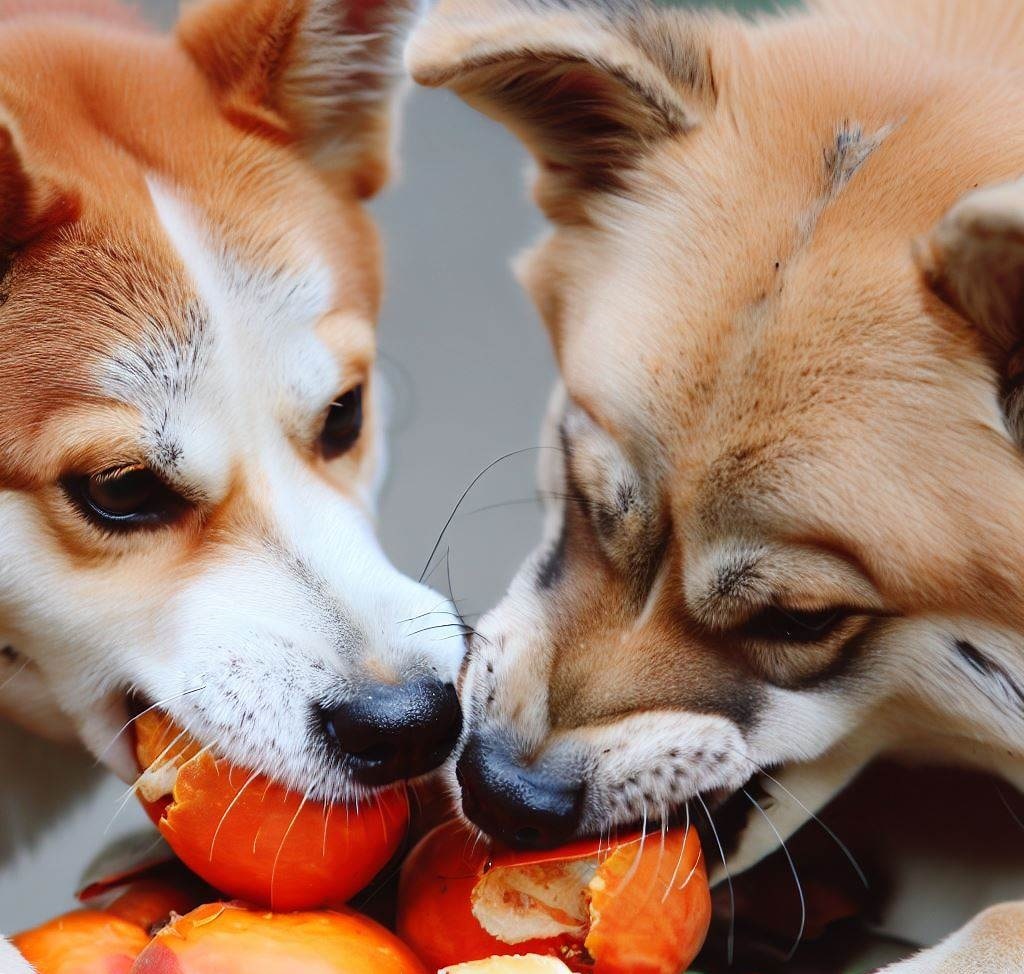
Can dogs eat persimmon seeds?
No, dogs should not consume persimmon seeds as they can pose a choking hazard and contain compounds that may be harmful.
Are there any persimmon varieties safer for dogs?
Among persimmon varieties, Fuyu persimmons are generally considered safer due to their lower tannin content.
How should I introduce persimmons to my dog’s diet?
Introduce persimmons gradually and in small quantities to monitor for any adverse reactions or digestive issues.
Can persimmons replace veterinary-recommended food?
No, persimmons should not replace your dog’s regular, balanced diet recommended by a veterinarian.
What are the signs of persimmon toxicity in dogs?
Signs may include vomiting, diarrhea, abdominal discomfort, and lethargy. If observed, consult a veterinarian.
Is it safe for dogs to eat dried persimmons?
Dried persimmons, while concentrated in flavor, can still contain tannins and high sugar levels. It’s best to avoid them.
Conclusion
In conclusion, the question of whether dogs can eat persimmons is nuanced. While persimmons do contain beneficial nutrients, the potential risks associated with their consumption cannot be overlooked. The presence of tannins, choking hazards, and high sugar content warrant careful consideration. If you choose to share persimmons with your dog, do so in moderation, and always prioritize their overall well-being.
As responsible pet owners, our mission is to provide our canine companions with safe and nutritious options that enhance their health and happiness.

